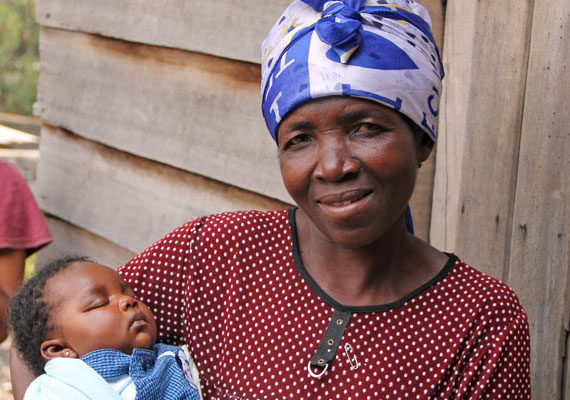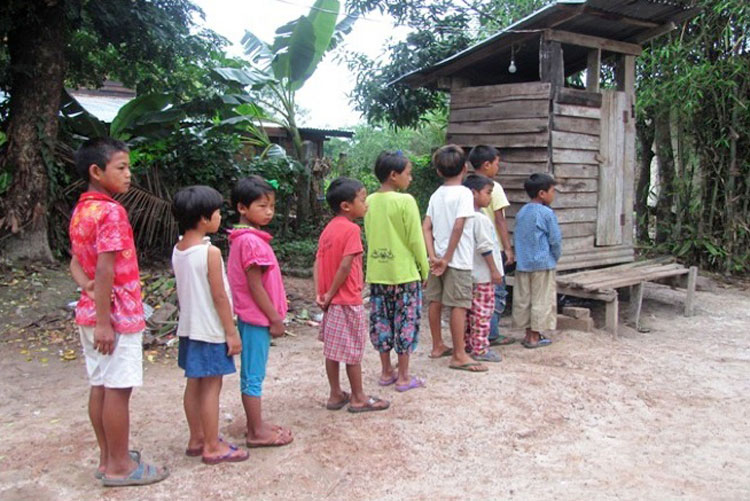Honorine Banyene quietly tended her field, an essential daily chore that made it possible for her to feed her family from the fruit of the ground. But unknown to the 48-year-old mother of 6, it would be a day of darkness like no other.
When Honorine saw four soldiers approaching, her instinct told her to run. She’d heard too many stories of what had happened to other women who lived in her region of conflict-ridden D.R. Congo. But it was too late. There was no place to hide.
The soldiers ignored her pleas for mercy, and no one dared come to her rescue as they repeatedly violated and beat her. Finally, they left her for dead. Others from her village, located in the Masisi region, experienced similar violence that day. Many didn’t survive. Honorine’s husband and children, not with her at the time, escaped with their lives.
Thankfully, a fleeing neighbor spotted Honorine lying in her field and carried her for help. Otherwise, she may have bled to death. During her recovery, however, Honorine’s husband died suddenly from a massive stroke. Worse, Honorine’s husband’s family blamed her for his death, and they subsequently rejected her and her children.
Devastated by her circumstances and fearing more violence, Honorine and her children joined the waves of other fleeing Congolese villagers caught in the crossfire of civil war. They walked 75 miles hoping to find refuge in Goma, a city swollen with refugees just like them.
Once settled in a refugee camp, Honorine soon learned that Goma’s public water system was non-functional, which necessitated that most everyone collect unfiltered water from nearby Lake Kivu. So she and her older children joined the daily horde who haul 5-gallon jerry cans full of impure water uphill, from Lake Kivu to their squalid camps. Intestinal sickness is inevitable, and death from water-bourne disease is a threat, but the alternative is dying from thirst. With a 90% unemployment rate, few in Goma can even afford fuel for boiling their water to make it safe to drink.
Although Honorine knew about the Lord when she lived in her rural village, she didn’t know Him personally. But the tragic circumstances of her suffering and displacement did not separate her from God’s love. Honorine encountered that love at the Women’s Wellness Center, supported in various ways by Heaven’s Family. The center offers a gospel-based program that includes biblical counseling, medical care, vocational and life-skills training, and food supplements.
Honorine has since surrendered to Jesus and experienced the transformation He gives. She is now being discipled, and at the same time she’s learning to make baskets and soap so that she can sell them in the market to provide for her family.
As the director of Heaven’s Family’s Safe Water Fund, I’m happy to report that the Women’s Wellness Center now also offers clean, safe water for all the women who come each day as well as for other local believers. We recently funded 3 large plastic rainwater collection tanks.
We also provided 10 Sawyer water filters to a group of Goma chaplains who’ve set up a strategic network to provide safe water to church members, their neighbors, and local prison inmates. Each filter can effectively remove bacteria, parasites, and debris from as many as one million gallons of water during its lifetime.

At left, transporting water from Lake Kivu; at center, a few of the 10 Sawyer water filters that are now removing impurities from contaminated water; at right, one of the 3 water tanks, installed on a concrete base
Although our safe water projects in Goma may seem like a proverbial “drop in the bucket” in light of the city’s immense need, to Honorine and her new sisters in Christ, it’s a blessed drop that seems like a deluge, all thanks to your compassion and the Lord’s provision. And we’re even more thrilled about the “living water” that is flowing in the same locations in Goma, water that one can drink and never be thirsty again (see John 4:14).






